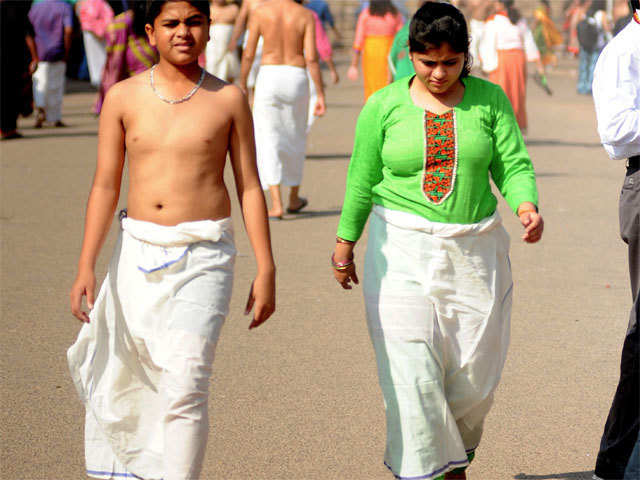
by Rajesh Ranjan 30 January 2020
The decision of the Kashi Vishwanath, Varanasi temple to enact a dress code for devotes has once again sparked the debate between the two facets of constitutional rights in Indian constitution, i.e. the dilemma between the liberty and faith. The dress code for the temples is not a new thing, before this a single judge bench of the Madras High court has also imposed the dress code for devotes, which was later struck down by Madras High Court stating that “judges cannot impose their own values on the society. In this short piece I am going to analyze the Temples right to manage their own religious affairs, right to choice of devotes and their faith and right to worship.
IMPOSITION OF DRESS CODE AND TEMPLE’S RIGHT
Article 26 of the Indian constitution provides that subject to public order, morality and health, every religious denomination or any section thereof shall have the right to manage its own affairs in matters of religion. The right to management is a guaranteed fundamental right which no legislation can take away, but the right to administer property can be subject to the provision of a valid law. But it is pertinent to ask that whether the Kashi vishwanath temple is a temple of religious denomination or not? The Supreme court in the case of Sri Adi Visheshwara of Kashi Vishwanath temple of Varanasi and others vs State of UP and others made it clear that the every Hindu has a right of entry to the Hindu temple and worship the deity. The Apex Court has denied the denominational status while stating that Every Hindu has a right to enter into the temple and touch the Shiv linga, irrespective of the fact that whether they believe in the Shaiva form or not. The blanket and self-drawn power of the board of the temple to impose the dress code is not only unconstitutional but also crushing the choice of individual to wear the clothes of their own choice.
RIGHT TO CHOICE VS RIGHT TO FAITH: STRIVING FOR A BALANCE
Liberty, taking the word in its concrete sense consists in the ability to choose. When the ability to choose is crushed in, any name its chilling effect can be felt in the Society. Right to choose is explicitly not mentioned in the Indian Constitution, however the reading of Article 19 and Article 21, conjunctively, it makes that right to choice is a vital for a quality life and also for liberty. The judicial precedent, as in the case of Shakti vahini vs UOI , Supreme Court of India in terms of right to choose a partner has recognized as a fundamental right. The decision of Kashi vishwanath temple is subverting the constitutional right to choice of wearing their own choice of clothes while offering the worship. The wearing of clothes of the individual choice has also a psychological value attached to it. It has been psychologically proven that the individual choice in terms of right to fashion has affected the mental health, attitudes and confidence level in life of an individual living being. Constitution of India in its progressive interpretation through the judiciary has also created the new vistas of right to life which itself is an umbrella for plethora of right available to individual. The right to life has been read in extenso to connote not just existence but a life in an enabling environment which makes possible a healthy and civilized way of life. No other Court in any democratic has given such a wide connotation to right to life. The jurisprudence of worship in Indian context is not merely limited to only right to worship of an individual or faith of the community, but also the right of deity to get the offerings. The decision of the Kashi Vishwanath temple has also affected the right of deity to get worshipped. The Supreme has recognized the deity as a juristic person and being in the capacity the deity avails their right. Barring the person who wears the jeans from performing the religious function. The striving for the balance between the faith and liberty must be understood in terms of the fact that Hinduism is a way of life not a religion in strict academic discourse. The empirical aspect of the religion is based upon the certain value which does give significance to primacy of choice.
THE WAY FORWARD
Law is dynamic so as the Society. The emancipatory project of progressive value by the Courts across the globe has made the individual right at the core of the every working constitution. Indian Supreme Court has also recognized the value of Transformative Constitutionalism and has paved the way for the recognition of several economic and social rights. The entry into a public temple should not be excluded on the basis of choice of clothes that a person wears but solely on the basis of the faith. The time has come to recognize the Indian constitution as a social document which cherishes the society in terms of inclusiveness.
